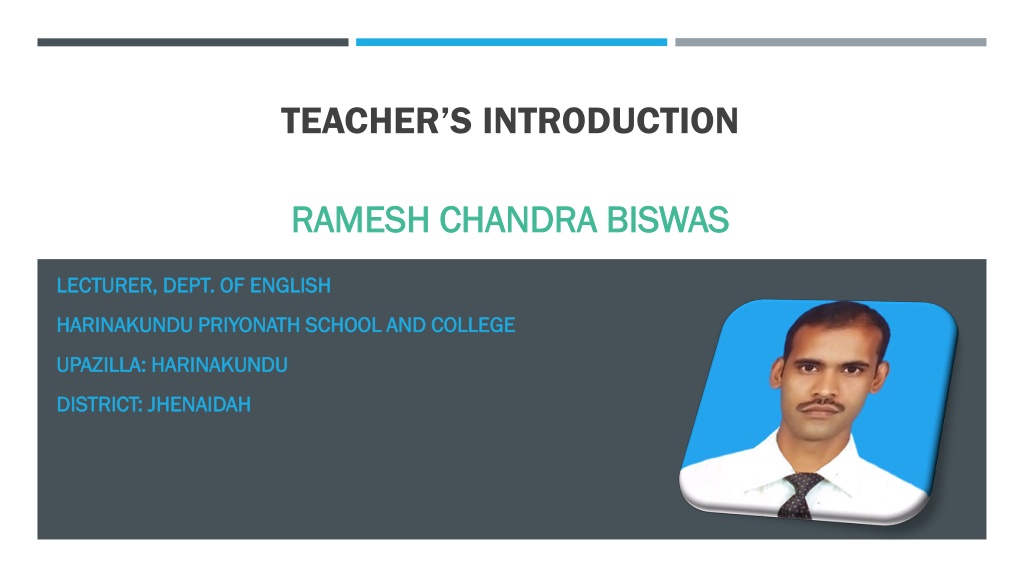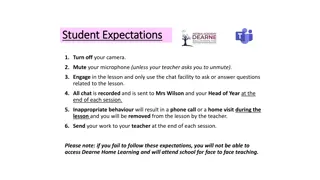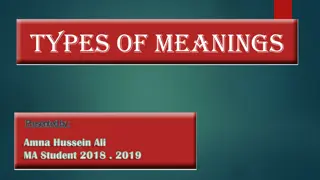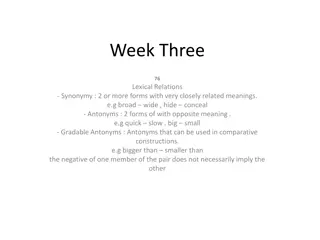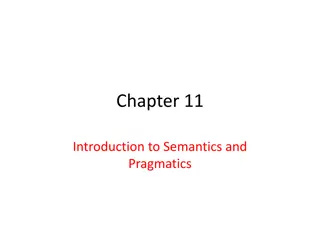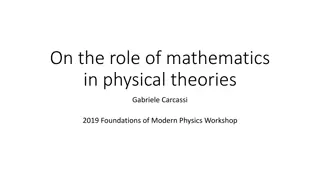Understanding Dreams: Exploring Theories and Meanings
Dreams have intrigued philosophers for centuries, with recent scientific research shedding light on their significance. While the purpose of dreams remains debated, various theories like Freud's psychoanalytic perspective offer insights into how dreams may be linked to our subconscious desires and thoughts. As research continues, the interpretation of dreams continues to be a fascinating field of study.
Download Presentation

Please find below an Image/Link to download the presentation.
The content on the website is provided AS IS for your information and personal use only. It may not be sold, licensed, or shared on other websites without obtaining consent from the author. Download presentation by click this link. If you encounter any issues during the download, it is possible that the publisher has removed the file from their server.
E N D
Presentation Transcript
TEACHERS INTRODUCTION RAMESH CHANDRA RAMESH CHANDRA BISWAS BISWAS LECTURER, DEPT. OF LECTURER, DEPT. OF ENGLISH ENGLISH HARINAKUNDU HARINAKUNDU PRIYONATH PRIYONATH SCHOOL AND COLLEGE SCHOOL AND COLLEGE UPAZILLA UPAZILLA: : HARINAKUNDU HARINAKUNDU DISTRICT: DISTRICT: JHENAIDAH JHENAIDAH
CLASS: XI-XII ENGLISH FOR TODAY UNIT: THREE DREAMS LESSON: ONE LESSON: ONE WHAT IS A DREAM WHAT IS A DREAM
LESSON PLAN Reading Test MCQ Questions Summary of the passage
Dreams have fascinated philosophers for thousands of years, but only recently have dreams been subjected to empirical research and scientific study. Chances are that you ve often found yourself puzzling over the content of a dream, or perhaps you've wondered why you dream at all. First, let s start by answering a basic question: What is a dream? A dream can include any of the images, thoughts and emotions that are experienced during sleep. Dreams can be extraordinarily vivid or very vague; filled with joyful emotions or frightening images; focused and understandable or unclear and confusing. Why do we dream? What purpose do dreams serve? While many theories have been proposed, no consensus has emerged. Considering the time we spend in a dreaming state, the fact that researchers do not yet understand the purpose of dreams may seem baffling. However, it is important to consider that science is still unravelling the exact purpose and function of sleep itself. Some researchers suggest that dreams serve no real purpose, while others believe that dreaming is essential to mental, emotional and physical well-being.
Next, lets learn more about some of the most prominent dream theories. Consistent with the psychoanalytic perspective, Sigmund Freud's theory of dreams suggests that dreams are a representation of subconscious desires, thoughts and motivations. According to Freud, people are driven by aggressive and sexual instincts that are repressed from conscious awareness. While these thoughts are not consciously expressed, they find their way into our awareness via dreams. In his famous book The Interpretation of Dreams, Freud wrote that dreams are ...disguised fulfilments of repressed wishes. Freud s theory contributed to the popularity of dream interpretation. Following his paths many theorists came up with their own ideas about dreams. The following are just a few of them:
Some researchers suggest that dreams are a subjective interpretation of signals generated by the brain during sleep. Dreams are not meaningless. Instead, during dreams the cognitive elements in our brain produce new ideas. One theory suggests that dreams are the result of our brains trying to interpret external stimuli during sleep. For example, the sound of the radio may be incorporated into the content of a dream. Another theory uses a computer metaphor to account for dreams. According to this theory, dreams serve to clean up clutter from the mind, much like clean-up operations in a computer, refreshing the mind to prepare for the next day. Yet another model proposes that dreams function as a form of psychotherapy. In this theory, the dreamer is able to make connections between different thoughts and emotions in a safe environment.
CHOOSE THE BEST OPTION FOR THE FOLLOWING QUESTIONS. (a) How many theories of dreams have been mentioned in the passage? (i) Three (ii) Four (iii) Five (iv) Six (b) Science is still the exact purpose and functions of dreams. (i) hiding (ii) focusing (iii) resolving (iv) experimenting (c) We may often find ourselves during dream. (i) sorry (ii) sad (iii) inclusive (iv) perplexing (d) Dreams serve no real purpose. Who suggested that? (i) some dreamers (ii) some saints (iii) some researchers (iv) some intellectuals (e) According to Sigmund Freud, people are driven by (i) compromising instincts (ii) cynical instincts (iii) apprehensive instincts (iv) forceful instincts
HOMEWORK Summarise the text. You may start it like the following one. Dreams have long been a fascination
THANKS FOR WATCHING Goodbye
